Discovering the Luangwa River
Alexandra Fries · | Environmental Report Cards |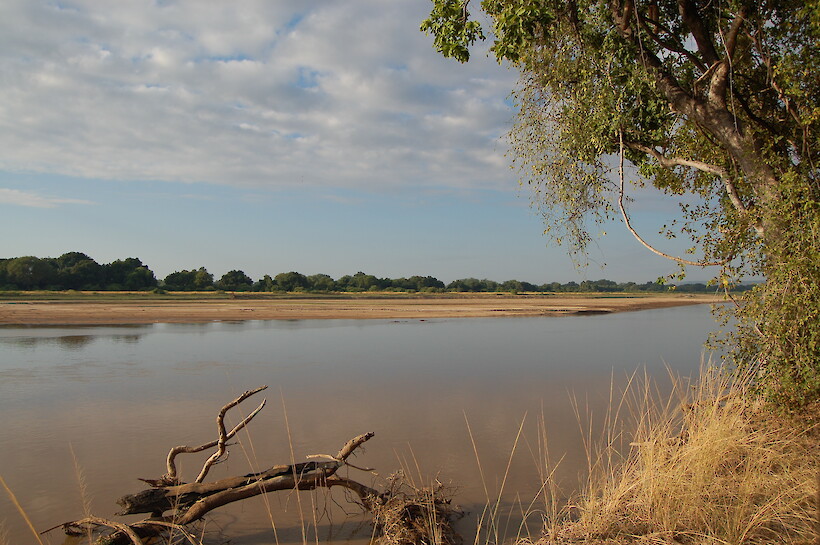
The Luangwa River in South Luangwa National Park.
Before this project I had never heard of the Luangwa River. I knew a little about Zambia, but couldn’t point it out on a map. Preparing for the trip I consulted the usual suspects, Wikipedia, Wikitravel, TripAdvisor, and began understanding more about this unique country and its people.
This project, lead by WWF-Zambia and the Zambia Water Resources Management Authority (WARMA), is to create a river basin health report card for the Luangwa River. It is the 3rd report card in Zambia, the other two being for the Lower Kafue and the Cuando Rivers.
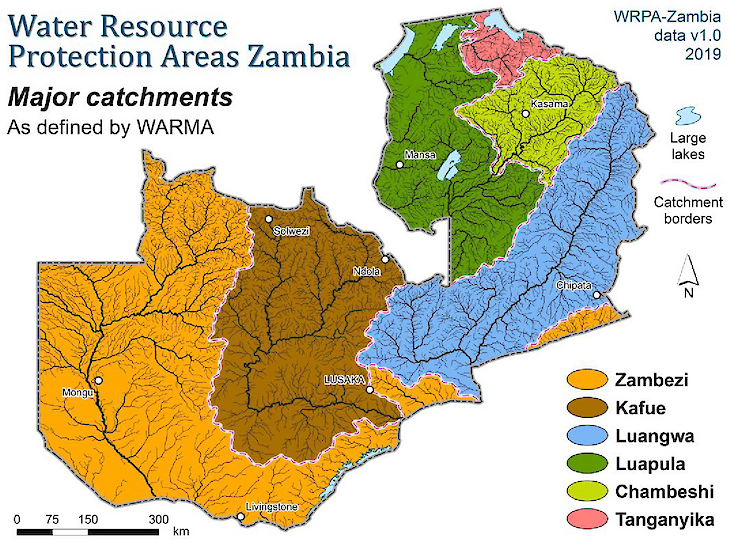
The Luangwa River stretches 528 miles (850 kilometers) in length and the watershed area is 90,528 mi2 (145,690 km2). The headwaters of the river start in the Mafinga Hills near the border with Tanzania and Malawi and the river drains into the Zambezi River at Luangwa Town.
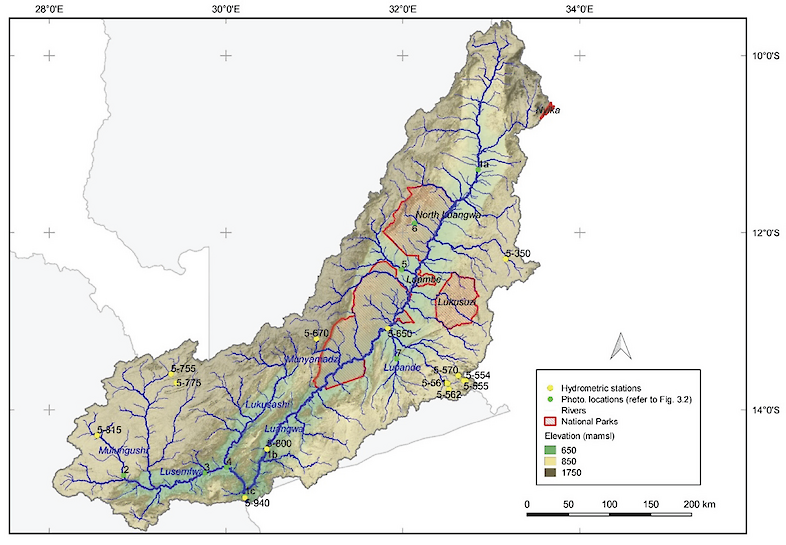
During the workshops in Katete and Mpika, we conceptualized the system, discussed the key features, and identified values and threats. There was so much information to take in! There were values of ecosystem, wildlife protection, tourism, forests and all of the ecosystem services the river provides. The main threats identified were poaching, deforestation, water pollution, unsustainable fishing, and sand mining.
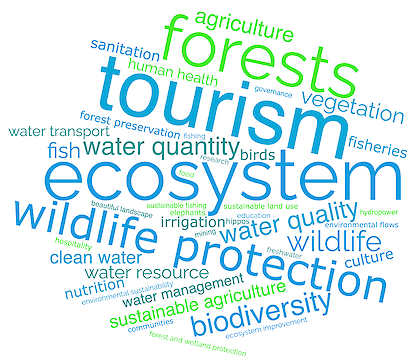
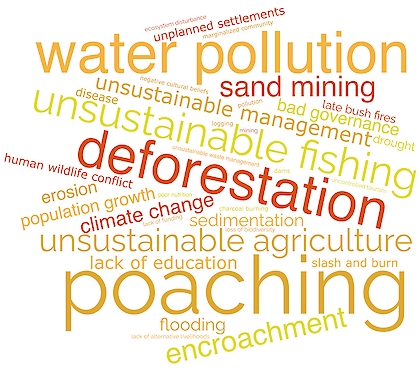
We also talked about health issues like the lack of clean water, lack of adequate sanitation, and lack of healthy food. Some people are really struggling with food insecurity. There is a staple food in Zambia called nshima, it is made from maize. Essentially it’s a thick porridge, somewhat similar to cream of wheat that I enjoy eating in the US, but corn-based instead of wheat. They use the nshima as a utensil to pick up meat, vegetables, and sauces. But some people may only have access to eat one meal a day. And the meal may only be a bowl of nshima, which has to last them until the next day’s meal.
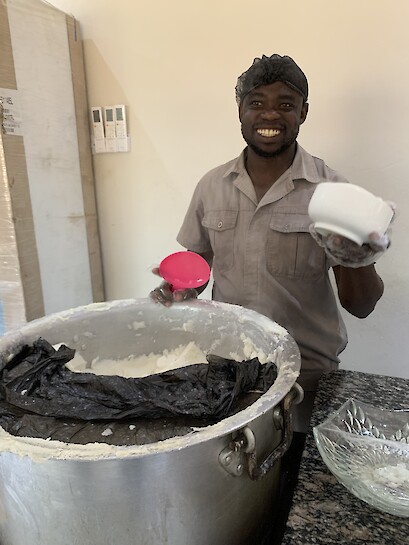
Poaching and trading in illegal wildlife products is a huge issue. But much of it comes from food insecurity. If you can hunt game meat either to eat yourself, or to sell in the market, then you are not going hungry. For some people this becomes the only option they see to help their families. Alternative livelihoods, like being a wildlife guide, or creating artisan goods, are vital to protecting the vulnerable species that call the Luangwa their home.
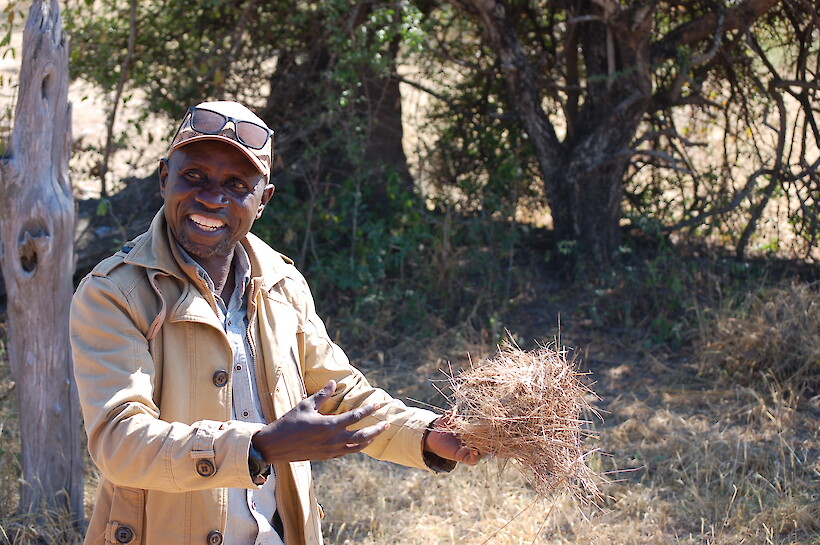
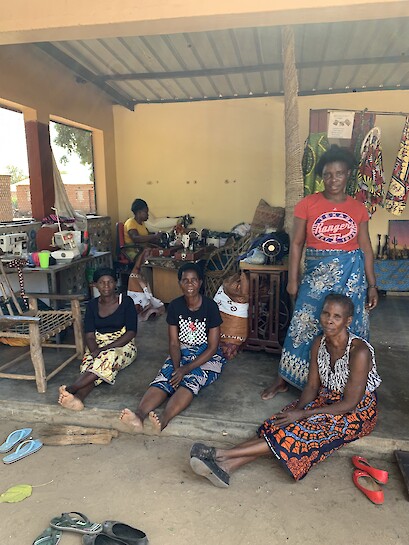
Zambia is growing, and as development occurs, changes to the ecosystems and the Luangwa River will occur. But sustainable use and management of the environment for wildlife and people can enrich communities and protect special places.
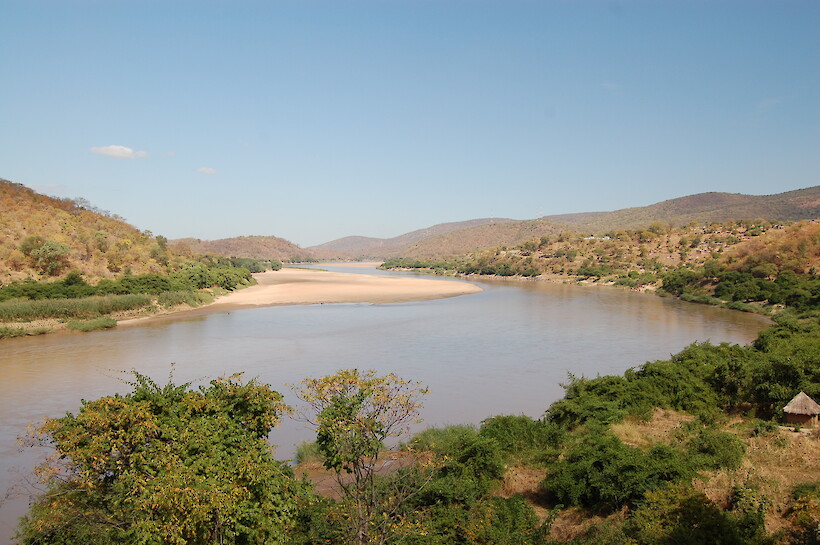
About the author
Alexandra Fries

Alexandra is a Program Manager at the Integration and Application Network (IAN) based at the University of Maryland Center for Environmental Science in Annapolis MD. Alexandra’s work in environmental management has been focused on assessment, monitoring, and management of aquatic, marine, and terrestrial ecosystems. Alexandra has extensive experience in data analysis, synthesis, mapping, interpretation, and communication. Alexandra has experience working with a diverse group of partners including those in local, state, and federal government, non-governmental organizations, non-profit organizations, private industry, and academia. Within IAN, Alexandra conducts data analysis, synthesis, and communication by completing environmental report cards, updating the IAN website, and conducting science communication courses. Alexandra also creates science communication materials such as diagrams, posters, presentations, newsletters, and reports using Adobe Creative Suite, Microsoft Office Suite, and ArcGIS. Alexandra has experience managing projects and staff on local and international projects, liaising directly with partners and colleagues, and providing insights on project direction and goals.